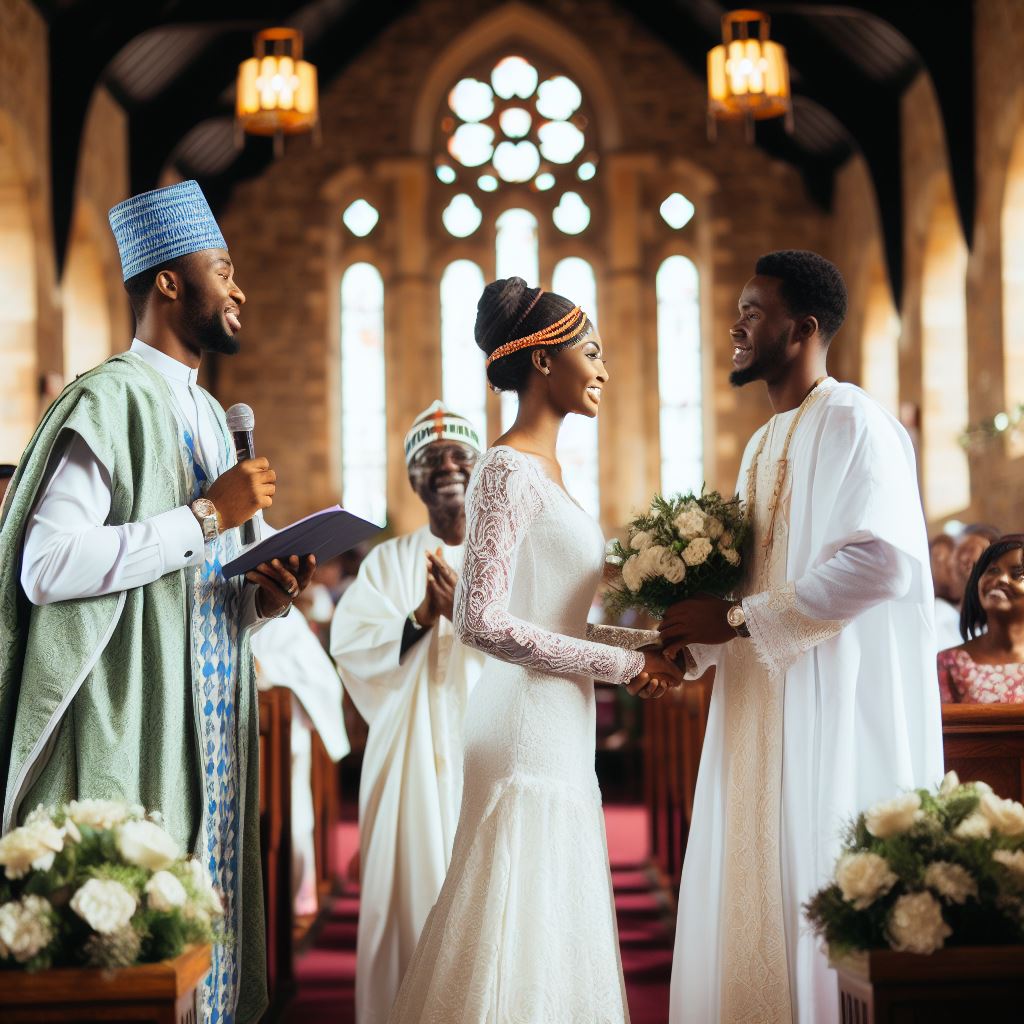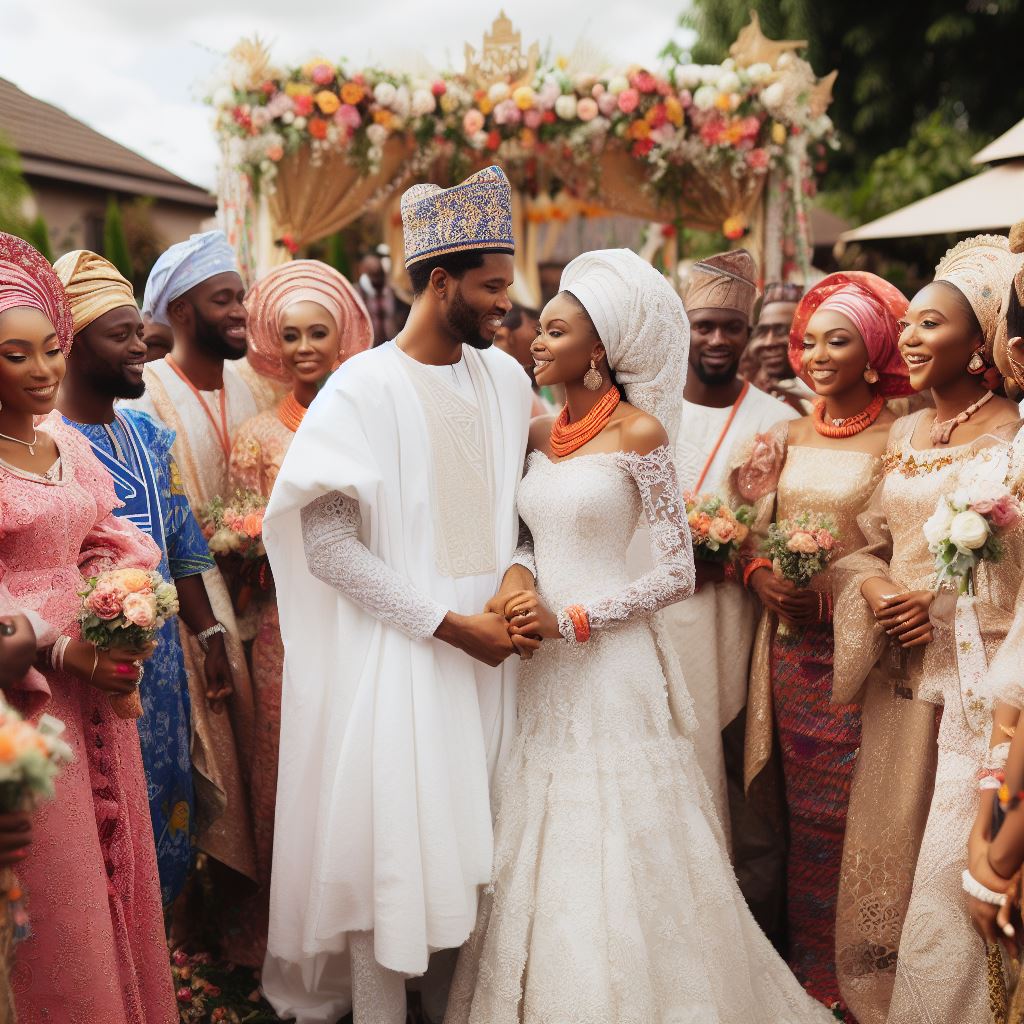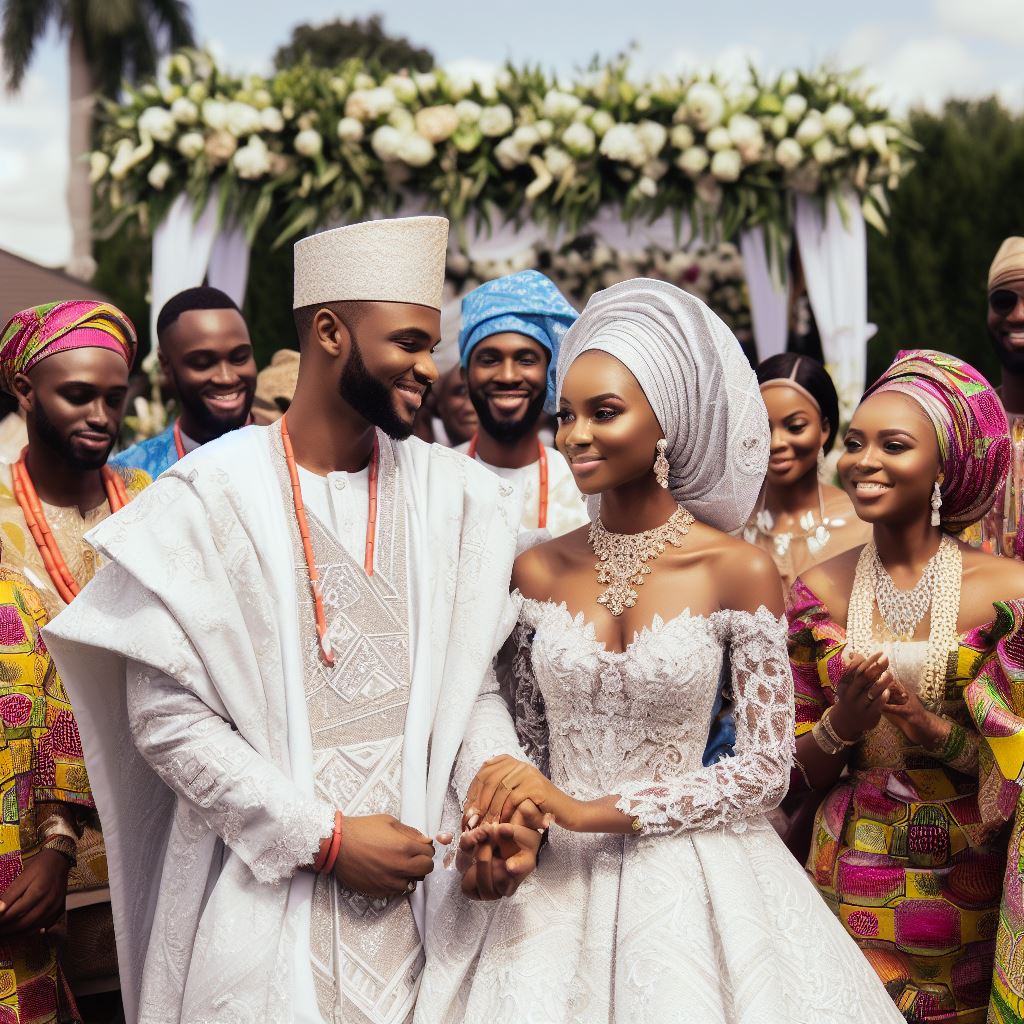Introduction
The growing popularity of reality shows in Nigeria, exemplified by ‘Married at First Sight,’ raises important questions about the social implications of such programs.
This show involves individuals getting married to complete strangers, chosen by a panel of experts, without meeting them beforehand.
The popularity and influence of reality shows in Nigeria have grown significantly in recent years.
The rise of these shows has had several social implications in Nigerian society.
This section will explore these implications and their effects on relationships, cultural norms, and mental health.
The concept of “Married at First Sight” challenges traditional notions of courtship and marriage in Nigeria.
The show’s popularity indicates a shift in societal values and a fascination with unconventional relationships.
Reality shows like “Married at First Sight” have the power to shape the attitudes and behaviors of viewers.
They expose audiences to different relationship dynamics and provide a platform for discussing social issues.
However, there are concerns about the distortion of reality and the potential negative impacts on participants’ mental health.
Critics argue that these shows prioritize entertainment over the well-being of individuals involved.
Moreover, the popularity of reality shows may contribute to a decline in the sanctity of marriage.
The “instant” nature of these unions undermines the commitment and endurance required for a successful marriage in Nigerian culture.
Basically, “Married at First Sight” and similar reality shows have become influential in Nigeria, capturing the attention and curiosity of viewers.
However, their social implications need to be critically examined to ensure they do not undermine traditional values and adversely affect individuals’ well-being.
Cultural Perspectives on Marriage in Nigeria
Traditional views and values of marriage in Nigeria
In Nigeria, marriage is seen as an important institution, deeply rooted in cultural traditions and values.
Marriage is seen as a way to preserve family lineage and ensure societal cohesion.
It is often characterized by parental involvement, as parents play a significant role in the matchmaking process.
Traditional beliefs and customs shape the expectations and responsibilities of married couples.
There is a strong emphasis on the importance of fidelity, respect, and gender roles within marriage.
Influence of modernization on marriage norms
In recent years, Nigeria has experienced significant social changes due to modernization.
The influence of Western culture and globalization has led to a shift in marriage norms.
Younger generations are increasingly influenced by media, including shows like ‘Married at First Sight’.
These shows depict non-traditional approaches to marriage, challenging traditional values and expectations.
Modernization has also brought about individualism and a desire for personal fulfillment, influencing marital choices.
The role of arranged marriages and family involvement in Nigeria
Arranged marriages have long been a common practice in Nigeria, with family involvement playing a crucial role.
Parents and extended family members typically collaborate in selecting suitable partners for their children.
Arranged marriages are often seen as a way to strengthen family ties and maintain social harmony.
While arranged marriages are still prevalent, there has been a gradual shift towards more love-based marriages.
The influence of Western ideals of romance and individual choice has impacted the traditional practice of arranged marriages.
Generally, the social implications of shows like ‘Married at First Sight’ in Nigeria are significant.
They challenge traditional views and values of marriage, influenced by traditional beliefs and customs.
Modernization has brought about changes in marriage norms, with increasing individualism and media influence.
Arranged marriages and family involvement still play a significant role in Nigeria, but there is a gradual shift towards love-based marriages.
Understanding these cultural perspectives on marriage is crucial in analyzing the social implications of shows like ‘Married at First Sight’ in Nigeria.
Read: ‘Married at First Sight’: Can Instant Weddings Last in Nigeria?
Overview of “Married at First Sight” Show
Show format and premise
“Married at First Sight” is a reality TV show that explores the idea of arranged marriages.
In this unique social experiment, individuals who have never met before are paired together by a team of experts.
They get married, go on a honeymoon, and live together for a few weeks, all while getting to know each other from scratch.
At the end of the experiment, they decide whether to stay married or get divorced.
Introduction of the Nigerian version of the show, if applicable
In Nigeria, the show “Married at First Sight” gained popularity and was adapted to reflect the country’s cultural context.
The Nigerian version showcased the diversity and nuances of Nigerian traditions, customs, and beliefs regarding marriage.
It aimed to provide an opportunity for Nigerians to explore the concept of arranged marriage in a contemporary setting.
Comments on the reception and viewership of the show in Nigeria
The Nigerian version of “Married at First Sight” received mixed reactions from viewers.
Some praised the show for its realistic portrayal of the challenges faced by couples in arranged marriages, while others criticized it for promoting a potentially harmful and superficial perspective on marriage.
One aspect that stood out for many viewers was the cultural representation in the show.
The Nigerian adaptation highlighted the rich tapestry of traditions and rituals surrounding marriage in different regions of the country.
This resonance with the audience contributed to the show’s popularity.
However, there were concerns raised about the ethical implications of the show.
Critics argued that it trivialized the institution of marriage by reducing it to a reality TV spectacle.
They questioned if it was appropriate to showcase such an intimate and life-altering decision on television for entertainment purposes.
Despite these concerns, the show garnered substantial viewership in Nigeria.
Many people were intrigued by the concept and interested in witnessing the dynamics of arranged marriages unfold.
The show provided a platform for discussions about marriage, love, and compatibility in a society that traditionally places a high value on arranged unions.
“Married at First Sight” sparked conversations about the evolving nature of marriage in Nigeria.
It prompted individuals to question the role of tradition and compatibility in their own relationships.
The show challenged existing norms and encouraged viewers to contemplate alternative approaches to finding a life partner.
“Married at First Sight” made its mark in Nigeria by introducing a thought-provoking concept and adapting it to the country’s cultural context.
While it garnered mixed reactions, the show succeeded in generating discussions, raising awareness, and challenging societal perceptions about arranged marriages.
Its popularity reflected a growing curiosity among Nigerians to explore unconventional methods of finding love and companionship.
Read: The Reality TV Trend: Analyzing ‘Married at First Sight’s’ Success
Discussion of the Social Implications
The popularity of shows like “Married at First Sight” in Nigeria raises crucial questions about the social implications they hold.
By examining the impact on societal perception of marriage as well as individual behavior and relationship choices, we can gain valuable insights into the consequences of these shows.
Impact on societal perception of marriage
1. Shifting perspectives on the importance of compatibility
A significant social implication of shows like “Married at First Sight” is the impact they have on societal perception of marriage.
Traditionally, marriage in Nigerian society is regarded as a sacred union based on compatibility and shared values.
However, these shows are shifting perspectives on the importance of compatibility.
Many young Nigerians are now questioning whether a deep emotional connection is necessary for a successful marriage, as the participants on these shows often enter into arranged marriages without prior knowledge of their partner.
2. Expectations regarding physical appearance and love
These shows also shape expectations regarding physical appearance and love.
Participants on “Married at First Sight” often prioritize physical attractiveness and infatuation over deeper emotional connections.
This can lead to unrealistic expectations and dissatisfaction within real-life relationships, as people begin to believe that love at first sight and physical attraction are enough to sustain a long-term commitment.
Influence on individual behavior and relationship choices
1. Adoption of unconventional relationship methods
In addition to influencing societal perception, these shows also have a significant impact on individual behavior and relationship choices.
One of the consequences is the adoption of unconventional relationship methods.
In Nigeria, where arranged marriages were relatively common in the past, shows like “Married at First Sight” normalize the idea of marrying a stranger selected by experts.
This unconventional approach may lead some individuals to consider similar options in their own pursuit of love, disregarding traditional matchmaking processes.
2. Attitudes towards commitment and long-term relationships
Furthermore, these shows also influence attitudes towards commitment and long-term relationships.
The format of “Married at First Sight,” where couples make a lifelong commitment without getting to know each other beforehand, can create unrealistic expectations regarding commitment.
Some may start viewing commitment as a trivial matter or even as disposable, undermining the value of long-term relationships built on trust, shared goals, and mutual understanding.
In essence, shows like “Married at First Sight” have significant social implications in Nigeria.
They challenge societal norms regarding marriage, shifting the focus from compatibility and emotional connection to physical appearance.
Additionally, they influence individual behavior by encouraging unconventional relationship methods and potentially devaluing commitment in long-term relationships.
It is essential to critically evaluate the influence of such shows on our society and understand their implications in order to make informed choices about marriage and relationships.
Read: Finding True Love: Do Shows Like ‘Married at First Sight’ Help?

Criticism and Controversies of the Show
Negative portrayal of marriage values and traditions
The show “Married at First Sight” has faced criticism in Nigeria for its negative portrayal of marriage values and traditions.
Many argue that the show presents marriage as a mere experiment, undermining its sacredness and the cultural significance attached to it.
- Belittling the sanctity of marriage: The concept of getting married to a complete stranger goes against the traditional values of finding a life partner through courtship, family involvement, and cultural compatibility.
- Insensitivity towards cultural diversity: Nigeria is a country with diverse ethnic groups and traditions. However, the show fails to address or respect these cultural differences, presenting a generic idea of marriage that may not resonate with the Nigerian audience.
Concerns regarding exploitation of participants for entertainment
Another criticism of the show is the potential exploitation of participants for the sake of entertainment.
The show’s format revolves around couples who agree to marry without prior knowledge of each other, which raises ethical concerns.
- Emotional manipulation: Participants may be manipulated into situations that create drama and conflict for the sake of entertainment value, disregarding the emotional well-being of the individuals involved.
- Lack of adequate support: The show’s producers and experts may not provide sufficient support or resources for participants to navigate the challenges of a marriage that started on uncertain grounds. This could further exacerbate emotional distress and potentially harm the contestants.
Ethical and moral dilemmas associated with the show
Furthermore, “Married at First Sight” raises several ethical and moral dilemmas that have sparked controversy in Nigeria.
These dilemmas touch on personal autonomy, consent, and the potential effects on participants’ lives beyond the show.
- Consent and informed decision-making: Critics argue that participants might not fully comprehend the consequences of their decision to marry a stranger, raising concerns about whether true informed consent can be obtained.
- Long-term implications: The show’s short-term focus on the honeymoon phase and initial challenges of marriage fails to address the potential long-term consequences for the participants. This oversight leaves space for emotional damage and lasting negative effects on their lives.
In short, “Married at First Sight” in Nigeria has faced criticism and controversies due to its negative portrayal of marriage values and traditions, concerns about participant exploitation, and ethical and moral dilemmas associated with the show.
Understanding these criticisms and controversies is crucial for a balanced evaluation of the social implications of such shows on Nigerian society.
Read: How ‘Married at First Sight’ Reflects & Challenges Nigerian Values
Find Out More: How Traditional Nigerian Ceremonies Honour the Institution of Marriage
Positive Aspects and Benefits of the Show
Increased awareness and discussions on marriage-related topics
- The show sparks conversations about marriage, highlighting its importance in society.
- Viewers become more aware of the challenges and nuances of married life.
- Discussions on topics like communication, compromise, and trust are encouraged.
- The show promotes awareness of different perspectives and experiences within relationships.
- Increased awareness leads to a more informed and prepared approach to marriage.
Encouragement of open conversations about relationships
- ‘Married at First Sight’ encourages open dialogue about relationships and love.
- The show provokes discussions on compatibility, attraction, and long-term commitment.
- It challenges societal norms and encourages viewers to question traditional dating practices.
- Open conversations help individuals understand different relationship dynamics and expectations.
- By discussing relationship struggles, viewers learn from the experiences of others.
Potential for personal growth and self-reflection for participants
- Participants in the show have the opportunity to reflect on their own desires and expectations.
- The experience allows for self-discovery and understanding of individual needs in a marriage.
- Challenges faced on the show encourage personal growth and emotional development.
- Participants receive professional guidance, helping them address personal and relationship issues.
- Personal growth during the show can positively impact their future relationships.
Increased awareness and discussions on marriage-related topics
The show ‘Married at First Sight’ in Nigeria has several positive aspects and benefits worth considering.
Firstly, it plays a significant role in increasing awareness surrounding marriage-related topics.
By airing real-life instances of couples who marry strangers, the show sparks conversations about the institution of marriage and its importance in society.
Viewers become more aware of the challenges and nuances involved in married life, promoting a deeper understanding of the commitment it requires.
Encouragement of open conversations about relationships
The show encourages open conversations about relationships.
‘Married at First Sight’ challenges societal norms and pushes viewers to question traditional dating practices. It provokes discussions on compatibility, attraction, and long-term commitment.
By promoting open dialogue, individuals gain a better understanding of different relationship dynamics and expectations.
Discussing relationship struggles helps viewers learn from the experiences of others, ultimately enriching their own understanding of love and relationships.
Potential for personal growth and self-reflection for participants
The show also offers potential for personal growth and self-reflection for participants.
Those who participate in ‘Married at First Sight’ have the unique opportunity to reflect on their own desires and expectations in a marriage.
The experience allows for self-discovery and a deeper understanding of one’s individual needs within the context of a committed relationship.
Furthermore, the challenges faced on the show encourage personal growth and emotional development, as participants navigate unfamiliar territory.
With the support of professional guidance, participants can address personal and relationship issues constructively, setting a foundation for growth and improvement.
The personal growth experienced during the show can have a positive impact on participants’ future relationships.
In a nutshell, ‘Married at First Sight’ in Nigeria brings forth numerous positive aspects and benefits.
By increasing awareness and promoting important conversations about marriage, the show contributes to a more informed and prepared approach to marital life.
It encourages open dialogue about relationships, challenging societal norms and broadening viewers’ understanding of love.
It provides participants with opportunities for personal growth and self-reflection, equipping them with valuable insights and skills for future relationships.
While the show may have its drawbacks, it is important to recognize the positive impact it has on individuals and society as a whole.
Conclusion
Recap of main points discussed in the blog post
The social implications of shows like “Married at First Sight” in Nigeria are significant.
It creates unrealistic expectations, promotes superficial connections, and undermines the importance of commitment in relationships.
Final thoughts
These shows may provide temporary entertainment value but can have detrimental effects on society.
They trivialize marriage and disregard the complexities of building a strong, lasting relationship.
Call-to-action
What are your thoughts on the impact of shows like “Married at First Sight” on Nigerian culture and the institution of marriage?
Share your views and experiences in the comments below.




